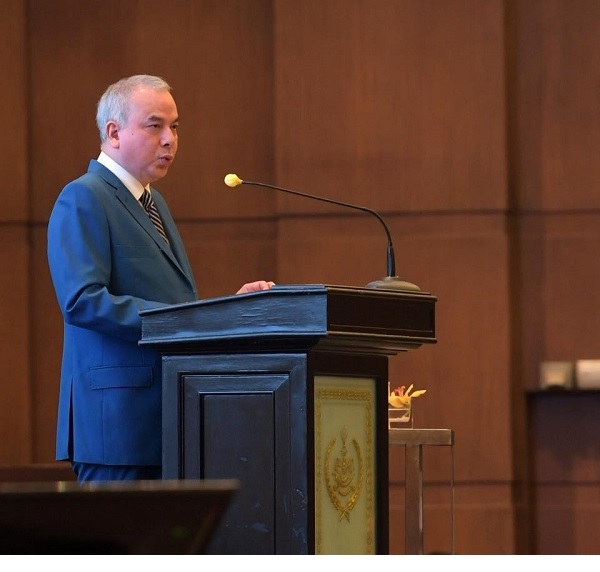
His Royal Highness Paduka Seri Sultan Perak Darul Ridzuan Sultan Nazrin Muizzuddin Shah Ibni Almarhum Sultan Azlan Muhibbuddin Shah Al-Maghfur-Lah.
KUALA LUMPUR : Strengthening ties with regional and international economies will continue to be fundamental to the growth of the global Islamic economy including Malaysia’s pursuit in becoming a high value-added, high-income economy, said His Royal Highness Paduka Seri Sultan Perak Darul Ridzuan Sultan Nazrin Muizzuddin Shah Ibni Almarhum Sultan Azlan Muhibbuddin Shah Al-Maghfur-Lah.
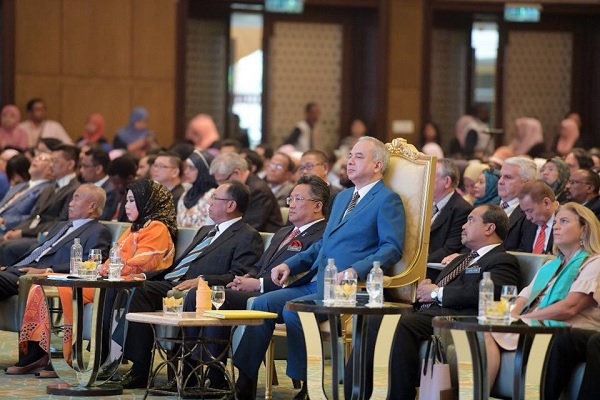
His Royal Highness Paduka Seri Sultan Perak Darul Ridzuan Sultan Nazrin Muizzuddin Shah Ibni Almarhum Sultan Azlan Muhibbuddin Shah Al-Maghfur-Lah.
HRH Sultan Nazrin said Islamic economy is increasingly being embraced on a global scale to become an integral part of the international system, and in the process of its development, has further expanded opportunities for the participation by the international community.
“This increases the inter-linkages both within and between economic regions of the world. In enhancing these new linkages and greater integration, Islamic economy is envisaged to contribute towards unlocking new potentials that would bring mutual benefits, and in doing so, enhance our overall prospects,” his HRH Sultan Nazrin said.
HRH Sultan Nazrin was speaking during a special address at the World Halal Conference 2018 (WHC 2018) ahead of a panel discussion on the Internationalisation of Islamic Economy: Global Integration and Strategic Collaboration.
The panel discussion was moderated by Prof. Dato’ Dr. Azmi Omar, President and Chief Executive Officer of the International Centre for Education in Islamic Finance (INCEIF), and the panel speakers are Assistant Governor of Bank Negara Malaysia Mr. Marzunisham bin Omar; Lembaga Tabung Haji Deputy Chief Executive Officer Dato’ Badlisyah Abdul Ghani; Mr. Richard Record, Lead Economist of the World Bank Group; and Mr. Ahsan Ali, the Managing Director and Head of Islamic Origination Standard Chartered Bank in the United Arab Emirates.
While the early development of Islamic economy was very much domestic-centric, today, the growth of Islamic economy is no longer organic and largely concentrated in countries where the Muslim population is significant, and the prime contributor to this is the increasing demand for Halal products, and greater acceptance of Islamic finance.
This recent decade has seen the internationalisation of Islamic economy, thus increasing the potential for strategic partnerships between international regulators and players that will bring mutually reinforcing benefits. Global integration and strategic collaborations will also enhance opportunities for Malaysia and other countries to capitalise on the diverse comparative advantages of nations.
The huge appetite for Halal products, and the Halal industry has grown to become a vibrant platform for Islamic economy to compete for a bigger share in today’s globalised economy. For example, from approximately US$3.2 trillion in 2012, the global Halal economy is expected to increase by 100% to US$6.4 trillion by 2018.
The positive attributes of Islamic finance has also emerged to become an effective tool for financing development worldwide, both in Muslim and non-Muslim nations, with the potential of addressing the challenges to end extreme poverty and boosting shared prosperity, according to the World Bank. The Islamic finance industry has expanded at the rate of 10% to 12% per annum over the past decade, and is expected to grow to US$6.7 trillion by 2020, driven by a surge of Islamic finance interest from non Muslim nations. Today more than US$260 billion is invested in Islamic funds and there are over 300 global Islamic institutions active around the world.
Meanwhile, Malaysia’s dynamic leadership in Islamic finance also saw it accomplish a stellar year in 2016 for corporate Sukuk issuance in which corporate issuers dominated the market with US$47.3 billion volume of issuance, representing a share of 63.2%, in contrast to historical trends where issuance was driven largely by sovereigns.
Organised by the Halal Industry Development Corporation (HDC), the WHC 2018 is themed “Whither the Next Economy?” and is an international platform to highlight the areas of Malaysian expertise that seeks to become a global benchmark in the development of the Halal industry.

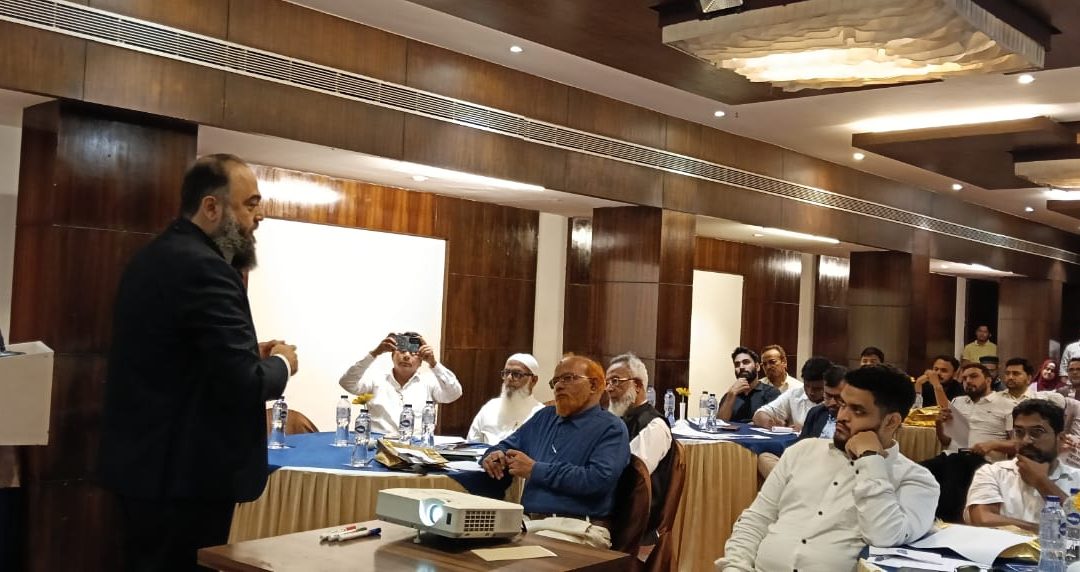
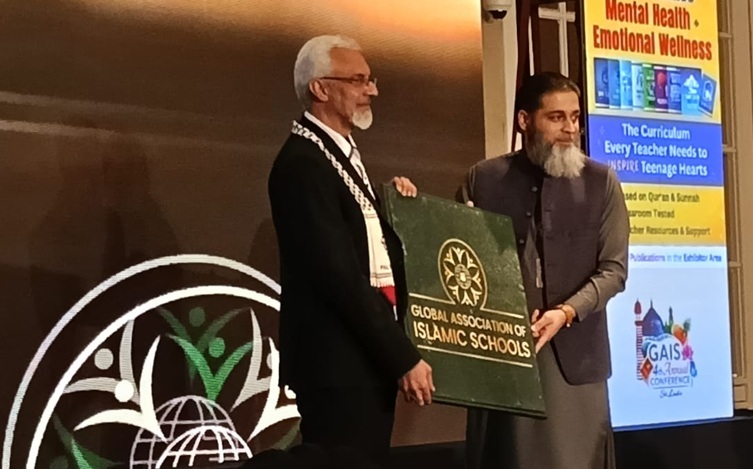
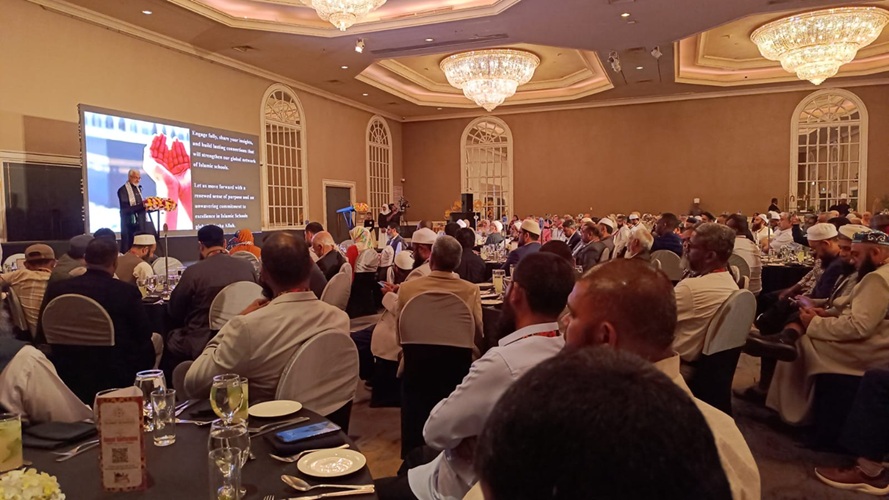
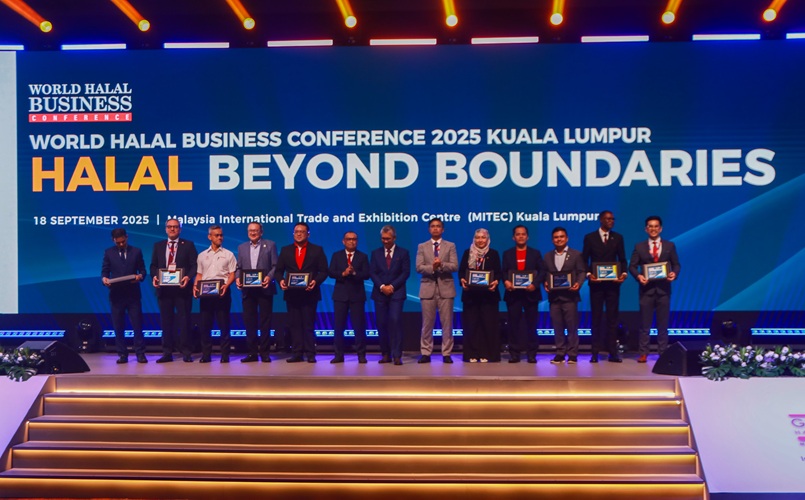
0 Comments